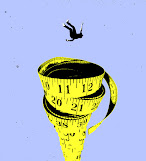#5 Eating Disorder Awareness
This week is marked as the National Eating Disorder Awareness (NEDA) Week in The United States, which aims to bring light to different eating disorders to increase the awareness, provide support for those suffering, as well as to educate the general public. I will be sharing more about eating disorders and the importance of raising awareness about such mental illness in our community, which to me is the elephant in the room that needs to be addressed. In Singapore where mental illness awareness is rarely touched on and many avoid the conversation of such illnesses, I personally believe that it’s of paramount importance to shed light on such disorders.
Why is there a need?
I feel the need for this blog as it can help those who are in recovery, those
who are still lost and seeking help. Shedding light to such topics to the public would hopefully allow for a better understanding of how individuals can
make Singapore a more inclusive society through actions and words with regards
to such mental illnesses.
As Donna Brazile once said:
“it takes but one person, one moment,
one conviction, to start a ripple of change”.
Giving Credit
Although there have been recent efforts by organisations such as NCSS to raise
awareness of mental illnesses like depression and bipolar disorder. This is
evident here: https://www.ncss.gov.sg/Our-Initiatives. However, other mental
illness, such as eating disorders and schizophrenia, have rarely been shared or
talked about.
About eating disorders
According to National Cancer Centre Singapore (NCCS), (is anyone questioning why
these statistics are from a cancer centre? Well... me too!) as of January 2020,
worldwide studies have revealed the risk of suffering from anorexia nervosa to
be between 0.5- 2% and bulimia nervosa between 0.9-3%. While females are more
commonly affected, males can represent up to 10% of those affected. A study
carried out in Singapore has shown that 7.4% of females between the ages of 12-
26 years old are at risk for developing an eating disorder (Eating Disorders in Children and Adolescents, n.d.).
To add on, there are many different types of eating disorders. They are but not limited to; anorexia
Nervosa, bulimia Nervosa, binge-eating disorder, Orthorexia Nervosa, pica,
rumination disorder as well as avoidant/ restrictive food disorder (Eating Disorders| AWARE Singapore, n.d.). There are
many other less common eating disorders such as night eating syndrome, purging
disorder, other specified feeding/ eating disorder (OSFED) and many more (Eating Disorders| AWARE Singapore, n.d.).
Points to note
Eating disorders are indeed more common among females but males are susceptible
to such mental illness too and there is nothing to be ashamed about to seek
help. Contrary to popular belief that eating disorders are a choice that the person makes and it’s mainly because the person may be vain and want to look a
certain way, this is a complete myth!
The causation of eating disorders can be
due to many different factors, some reasons not related to food and weight, such
as the need for control in life, genetics and certain personality traits. With
that said, people diagnosed with eating disorders are not control freaks. It is
just one of the many reasons that pile up and lead to such mental illnesses (Learn about 6 Common Types of Eating Disorders and Their Symptoms., 2019).
Main point to all females and males today
You are worth more than just numbers and at times we tend to surround ourselves
with so many numbers and restrictions that we don’t truly listen to our body and
what it wants. You deserve self-love and in case no one has told you today, you
are beautiful because you are you and your flaws make you unique. They make you
stand out. 🌿💫At the end of the day, people remember us based on our unique
features, our values, character, how we treat others and interact with others.
Not exactly how many flaws we have and how much we weigh?! If you ever have
those people around you, please move away from the toxicity and remember that
this only reflects the kind of person they are and NOT who you are. You are
worthy of love and care, learn to accept your body and be grateful for all the
things it has helped you accomplish. I personally am guilty of this as I have
never truly appreciated what my body has enabled me to do until I was injured
and could no longer carry our usual tasks or hobbies!
Today, the diet culture
and society as a whole has taught us to be ashamed and deprive ourselves of our
basic need- food. Why? To attain an “ideal” size, shape, body type, performance
(athletes)? It all doesn’t make sense because your body needs fuel and don’t
ever feel guilty for having the need to eat.
To all the warriors who are recovering and fighting tough battles within:
You can do this and I believe in you. 🌻💗You’re strong and you are very very
brave. 💪🏻On days that are very much tougher than other days, when you feel like
going back or you lose hope, know that it’s possible to recover and YOU have the
ability to as long as you continue fighting. Keep pushing forward even when the
eating disorder voice in your head keeps screaming at you. If it screams, you
scream back harder.
Remember: Recovery would inevitably be a series of ups and downs. There
is no such thing as perfect and linear life. All of us face challenges but we
can always make the decision to turn our setbacks into comebacks and become
stronger than before. NEVER let the number on the scale own you. 🙅🏻♀️
Today, continue to fight and find reasons to fight. Remind yourself of why you
want to get better whenever the eating disorder voice tells you to do otherwise.
Keep fighting for a life free from the eating disorder. 💪🏻
YOU ARE BEAUTIFUL
YOU
ARE LOVED
YOU ARE ENOUGH
Be sensitive 💖
If any of you know people who may be struggling with an eating disorder or
recovering from one, please show sensitivity by:
1. Avoiding comments on food and calories around the dinner table and also about weight and dieting
2. Avoid labelling by calling people with such mental illnesses names such as “anorexic” or “bulimic”
3. Avoid commenting on what the person has eaten unless it is part of their meal plan
4. Avoid comment on how they look physically as it can be triggering (e.g. you look better now, you look healthier now)
5. Do not try to sneak foods into their diet or be manipulative with the food that they eat
6.Do not talk about your own diet or skipping meals yourself
7. Do not ever give up on them even though sometimes it can seem like the person doesn’t want to
recover
8. Do understand that they may be ambivalent during recovery
9. Do understand that the nature of eating disorders are secretive
10. Do listen, provide support by being there for them and help them make appropriate decisions
that may be hard as a result of the ambivalent nature of an eating disorder
In case you got bored reading all these wordy paragraphs or don’t have the time
to read through everything mentioned above, the main points of this blog will be
summarised here.
All in all, eating disorders are very complex and they affect
people of all shapes and sizes. People don’t necessarily have to look “sick” or
be at a certain weight to have an eating disorder. Remember, it’s a mental and
not physical illness. Be kind to those with mental illnesses, show care and try
to avoid discussing about weight, calories or comment about their body and foods
they eat as this can make people with eating disorders anxious or worried.
For
those in recovery or have yet to seek help, it is important to remember that you
are worthy of love, care and your worth is NEVER dependent on the scale or your
size and how you look. You are more than that. You are a person with unique
values, hobbies, abilities and character.
Thank you for reading! I hope blogs like these can help raise awareness on mental illnesses such as eating disorders especially since this week is NEDA Week.
Nonetheless, the spreading of awareness and public education on such
topics is continuous and should not be restricted to this one week. Let us work
together to shed light on mental illnesses. 😌✨
Bibliography:
1. Eating disorders in children and adolescents. (n.d.). Retrieved February 28, 2021, from https://www.nccs.com.sg:443/news/medical-news-singhealth/eating-disorders-children-adolescents
2. Eating disorders| AWARE Singapore. (n.d.). AWARE. Retrieved February 28, 2021, from https://www.aware.org.sg/information/eating-disorders/
3. Learn about 6 common types of eating disorders and their symptoms. (2019, October 30). Healthline. https://www.healthline.com/nutrition/common-eating-disorders
Credits for images:
1. https://www.sheknows.com/wp-content/uploads/2019/12/how-to-support-friends-and-loved-ones-in-eating-disorder-recovery.png
2. https://www.nationaleatingdisorders.org/sites/all/themes/neda3/images/nedaw_logo.png
3. https://cdn.quotesgram.com/small/18/2/87329752-a1566450794ab491f588fa9616679fe1.jpg
4.https://64.media.tumblr.com/da754df6ca16b0a58ff37d9d8d4c72d8/tumblr_p7ob95dwJz1x4bfjio1_1280.jpg
5. https://i.pinimg.com/736x/2b/1d/bf/2b1dbfb3d72823bb3f0e11c867bf4fbf--eating-disorders-tattoo-eating-disorder.jpg
6. https://www.deborahhowardpsychotherapy.com/wp-content/uploads/2017/12/nourish-to-flourish.png
7. https://thecounter.org/wp-content/uploads/2020/07/eating-disorder-illustration-feature-image-july-2020-1410x0-c-default.jpg
8. https://img.buzzfeed.com/buzzfeed-static/static/2021-02/5/22/enhanced/60e8496b198e/longform-original-2130-1612564026-3.jpg











Love the awarness! Good read for those who are unfamiliar with bulima or eating disorders!
ReplyDelete